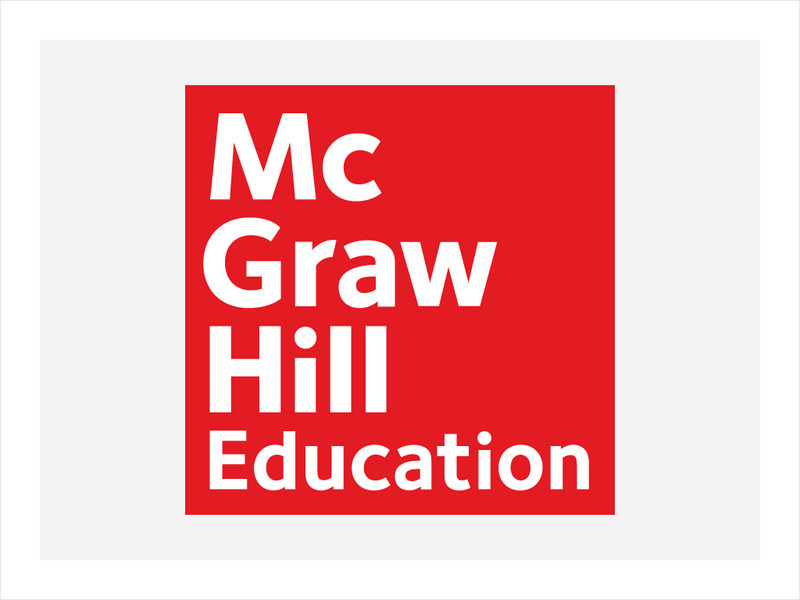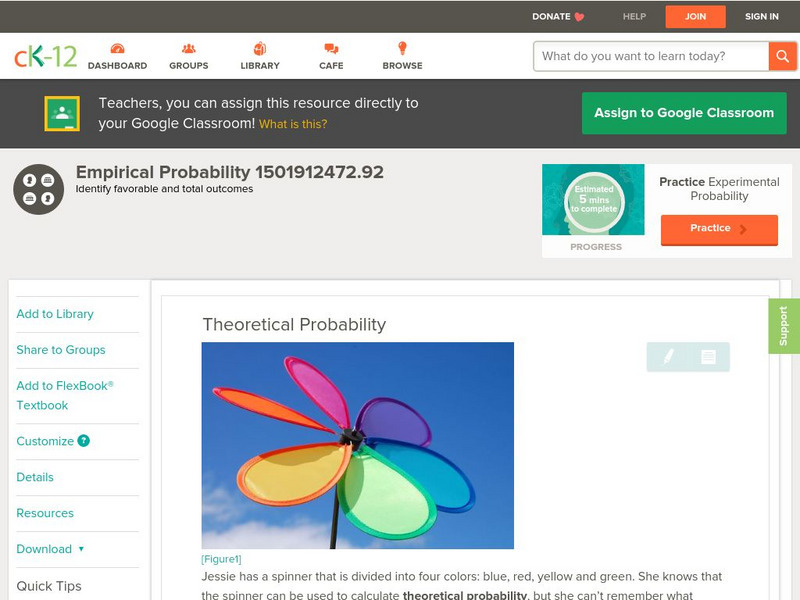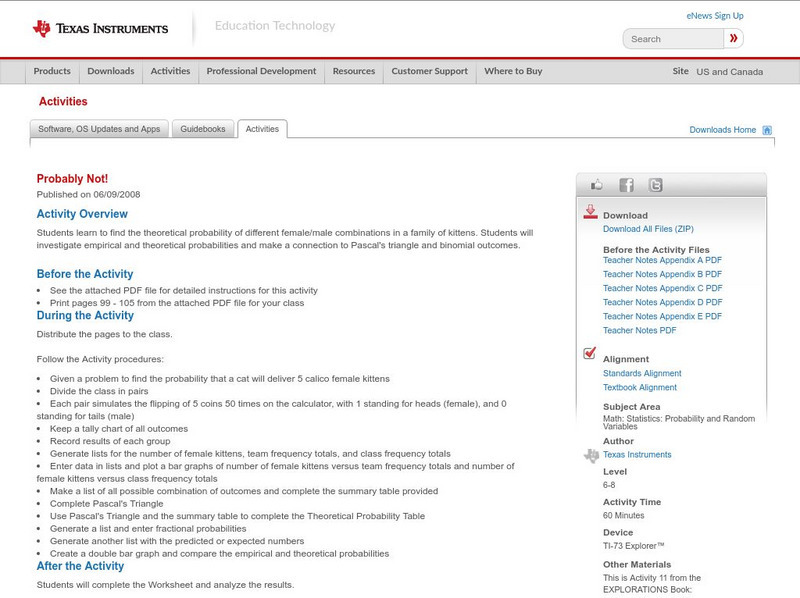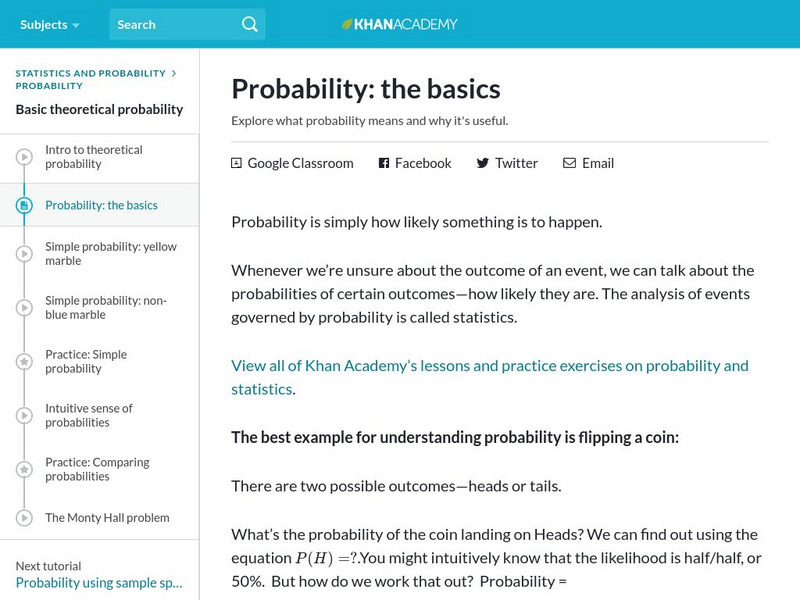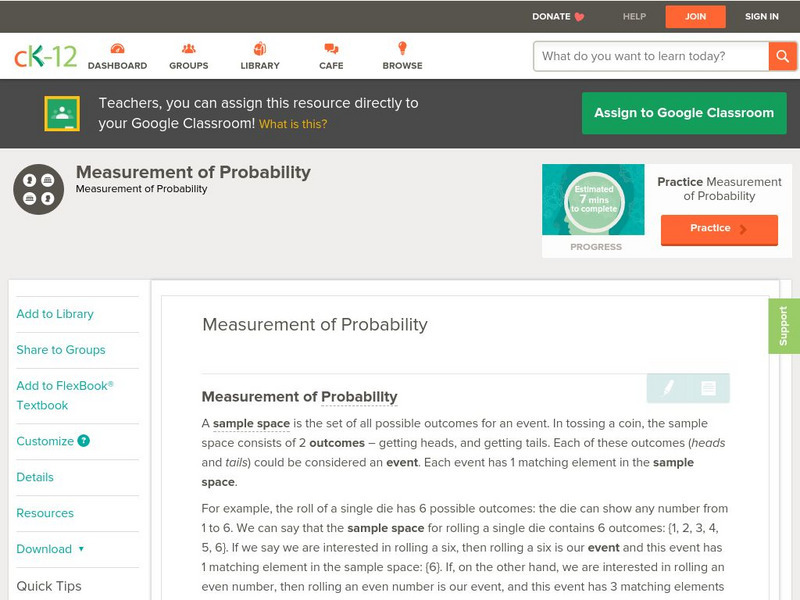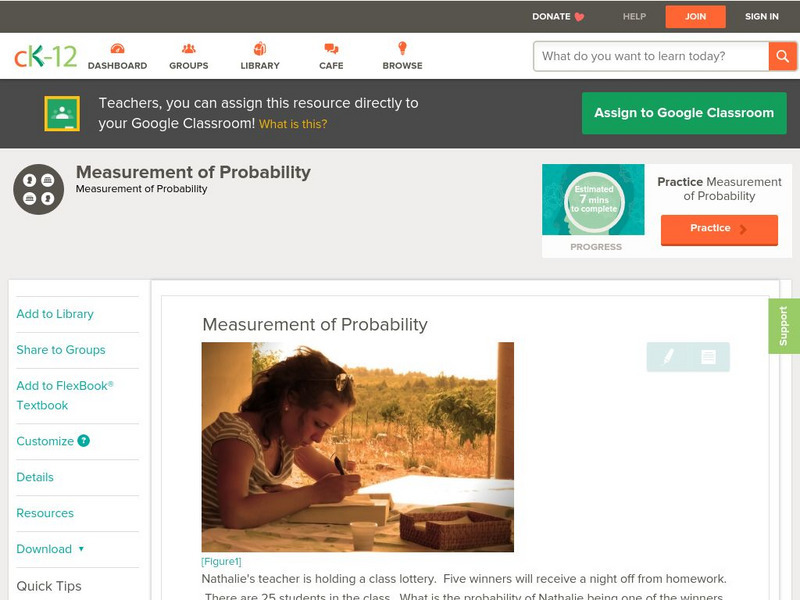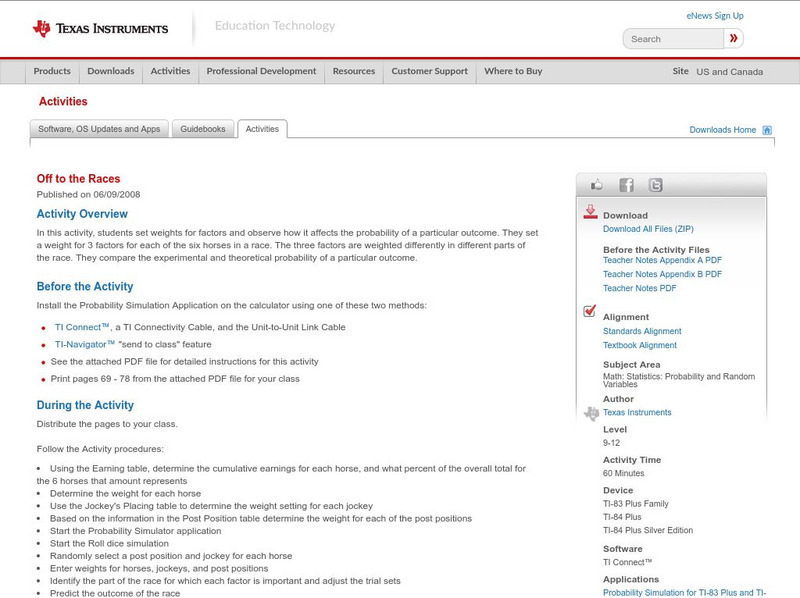McGraw Hill
Glencoe: Self Check Quizzes: Theoretical Probability
Use Glencoe's randomly generated self-checking quiz to test your knowledge of theoretical probability. Each question has a "Hint" link to help. Choose the correct answer for each problem. At the bottom of the page click the "Check It"...
Alabama Learning Exchange
Alex: Probability What Are the Odds?
This lesson introduces students to experimental and theoretical probability using spinners and trials with pennies. Students also research careers that involve probability, and create a video presentation. It provides an assessment and...
McGraw Hill
Glencoe: Self Check Quizzes 2 Theoretical and Experimental Probability
Use Glencoe's Math Course 2 randomly generated self-checking quiz to test your knowledge of Theoretical and Experimental Probability. Each question has a "Hint" link to help. Choose the correct answer for each problem. At the bottom of...
Shodor Education Foundation
Shodor Interactivate: From Probability to Combinatorics and Number Theory
Apply division to determine the probability of outcomes with a racing game.
Houghton Mifflin Harcourt
Holt, Rinehart and Winston: Homework Help Independent Practice: Theoretical Probability
Get independent practice working with theoretical probability. Each incorrect response gets a text box explanation and another try. Correct responses are confirmed.
Texas Instruments
Texas Instruments: You're Probably Right, It's Wrong
In this activity, students perform a simulation to guess answers on a test and determine the experimental probability of passing the test. They then compare it with the theoretical probability.
CK-12 Foundation
Ck 12: Probability: Empirical Probability Grade 8
[Free Registration/Login may be required to access all resource tools.] Define and calculate theoretical probability.
Khan Academy
Khan Academy: Theoretical and Experimental Probability: Coin Flips and Die Rolls
A set of questions on experimental and theoretical probabilities using coins and dice. Answers are accompanied by explanations.
Khan Academy
Khan Academy: Probabilities in Genetics
Article reviews some probability basics then investigates how these calculations can be applied to genetics problems involving relatively large numbers of genes. Explores how the sum rule and the product rule can be used to solve these...
CK-12 Foundation
Ck 12 Probability of Compound Events: Overview
[Free Registration/Login may be required to access all resource tools.] Watch a short video to review probability of compound events.
CK-12 Foundation
Ck 12: Probabilities of Compound Events
[Free Registration/Login may be required to access all resource tools.] A detailed explanation of how to use tree diagrams and tables to find the probability of compound events. Also looks at dependent events. Includes example problems...
Texas Instruments
Texas Instruments: Probably Not!
Students learn to find the theoretical probability of different female/male combinations in a family of kittens. Students will investigate empirical and theoretical probabilities and make a connection to Pascal's triangle and binomial...
Oswego City School District
Regents Exam Prep Center: Theoretical Versus Empirical Probability
Use this site to learn the difference between theoretical and empirical probability. A practice page is included for each and two teacher resource pages contain classroom activities.
Shodor Education Foundation
Shodor Interactivate: Probability and Outcome Discussion
This site is a virtual discussion between a teacher and student about probability and outcome. The virtual teacher poses wonderful questions for the students to think about. The virtual students then respond to the inquiries.
Varsity Tutors
Varsity Tutors: Hotmath: Practice Problems: Probability
Twenty-three problems cover a variety of probability topics. They are given with each step to the solution cleverly revealed one at a time. You can work each step of the problem then click the "View Solution" button to check each step of...
Khan Academy
Khan Academy: Probability: The Basics
Provides an introduction to probability. Includes examples, two videos, and links to additional resources, e.g., exercises to try. There are also problems and discussions of them in the Comments section.
Texas Education Agency
Texas Gateway: Exploring Probability With Independent Events
Given a problem situation, students will use experimental data or theoretical probability to make predictions and determine solutions to situations involving independent events.
CK-12 Foundation
Ck 12: Probability: Measurement of Probability Grades 9 10
[Free Registration/Login may be required to access all resource tools.] Find the number of outcomes, theoretical probability, and odds of events involving coins, dice, and cards.
CK-12 Foundation
Ck 12: Probability: Measurement of Probability Grade 7
[Free Registration/Login may be required to access all resource tools.] Write and predict theoretical probability using fractions, decimals and percents.
CK-12 Foundation
Ck 12: Probability: Definition of Probability
[Free Registration/Login may be required to access all resource tools.] Recognize and calculate simple theoretical probability.
Shodor Education Foundation
Shodor Interactivate: Spinner
This interactive learning activity allows students to explore experimental and theoretical probabilities using a spinner. Teacher resources are included.
Oswego City School District
Regents Exam Prep Center: Theoretical and Empirical Probabilities
The mathematics tutorial investigates theoretical and empirical probabilities. The lesson consists of class notes, examples, and practice problems with solutions. The teacher resource includes activities that explore empirical and...
Texas Instruments
Texas Instruments: Will Girls and Boys Be Equal?
Students explore concepts in probability and statistics. In this activity, they model a situation to find experimental probability and construct a box-and-whisker plot. They compare the experimental and theoretical probabilities for the...
Texas Instruments
Texas Instruments: Off to the Races
In this activity, students set weights for factors and observe how it affects the probability of a particular outcome. They set a weight for 3 factors for each of the six horses in a race. The three factors are weighted differently in...


